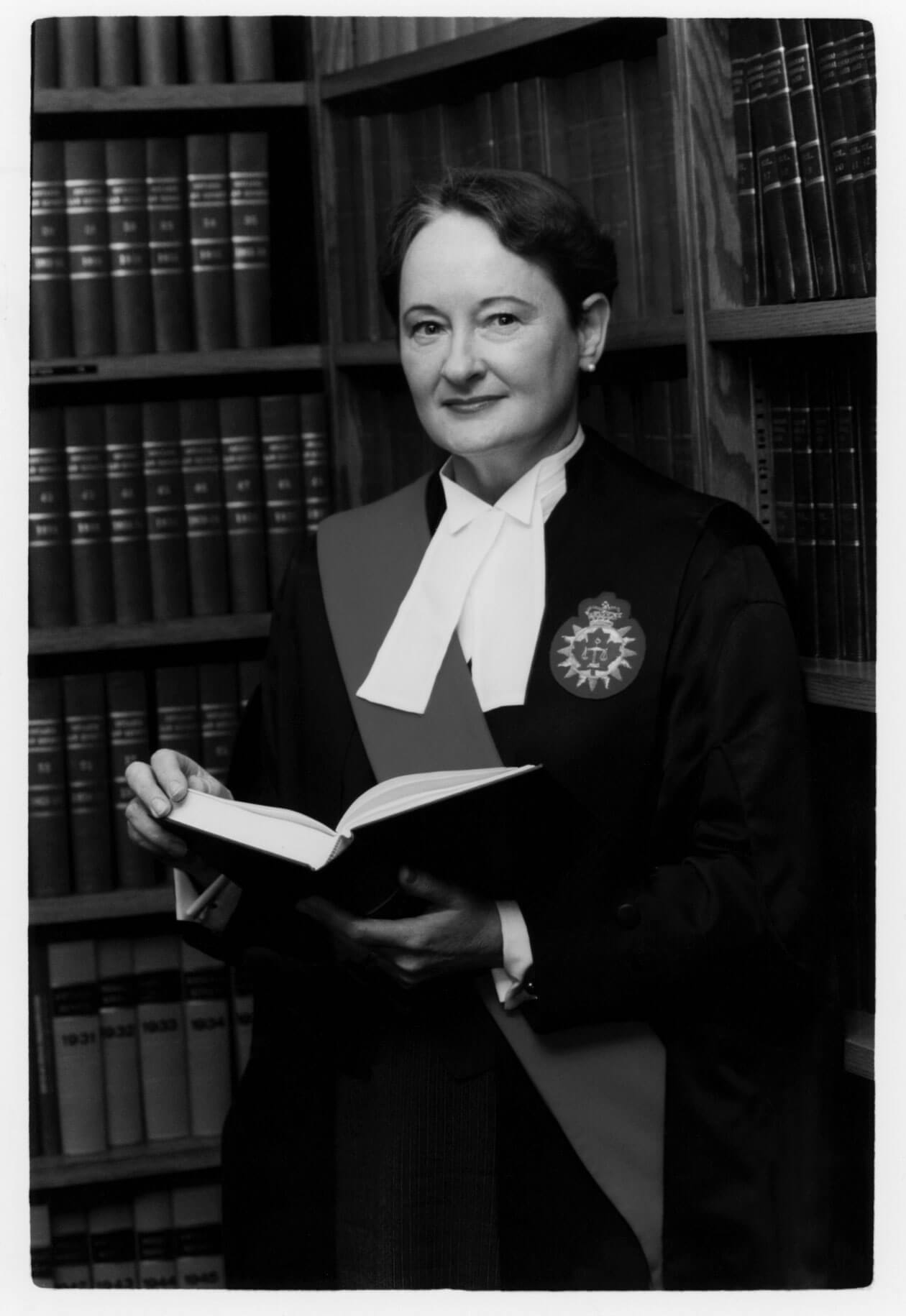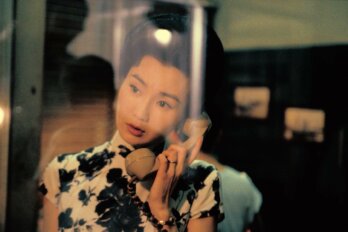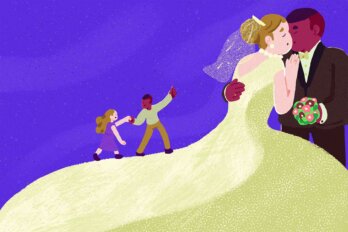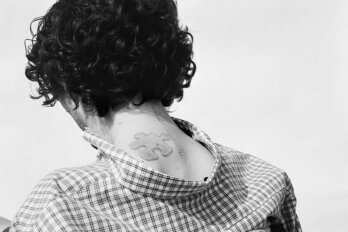
Though Saturday night brought rain, at least my morning was a little more leisurely than the week had been. On my way to the hospital, I picked up a power shake and some fashion magazines.
When I arrived, Anne was awake, looking rested. “I’ve received my last chemo,” she said. “The doctors said my condition seems stable again.”
“What good news!” I said, starting to think, Maybe she’ll get better, be able to go back home for a long time. “I have some magazines.”
“The only thing is, my head’s a little sore.” Seeing my gifts, Anne added, “Thank you. I’ll have the shake later.”
I put the cup on the side table. “I’ve brought some dry shampoo to use, if you like, and I can massage your head at the same time.”
Without talking much, I worked the shampoo into her hair and softly massaged her head as she closed her eyes. I wished I could make her well.
After the head massage, I started reading the Pamela Harriman article aloud. Anne and I had fun talking about that woman’s life—so unlike our own—and she drank almost all the shake. It was a short, pleasant visit, and Anne seemed more like her old self. When another friend of hers arrived, I left them to have a visit. “I don’t know when I’ll be back,” I said. “Edward’s having a party for twenty of his friends from 2:00 p.m. until 6:00 p.m. I won’t be able to leave the house until they’re all picked up.”
Twenty thirteen-year-olds are beyond boisterous. Still, I reflected, listening to the thumps and distant shouts coming from the third floor, teens’ birthday parties were a lot easier than those at younger ages. Over the years, I’d hosted kids’ skiing outings at the cabin, a planetarium excursion, a Chuck E. Cheese free-for-all, sleepovers, and a bowling night. “They can’t harm anything in a bowling alley,” a friend had suggested. Right she was, until I saw one little fellow headed down the lane still attached to the ball. As each birthday celebration approached, reliving the original birth had more appeal. At least at thirteen they liked to be left alone in the playroom to wreak havoc.
At 6:00 p.m., the official end time on the invitations, the party was still going strong. Shrieks and laughter could be heard as I delivered more ice cream cones and candy up the stairs.
I was peevish when I called Anne. “They’re still here,” I moaned. “I thought all of the kids would be picked up by now. I was careful to specify 6:00 p.m. on the invitation.”
“You’re a good mother,” she said. She was breathing heavily. “How are you feeling?” “I’m so tired now.” “No wonder,” I said. “You have non-stop visitors, especially now that it’s the weekend. Why don’t you turn off the phone for an hour and try to sleep? I’ll come down as soon as I can. Anything you’d like?”
“I’m still cold,” she complained. “I need socks and a wrap for my head. Chemo makes me so cold.”
“I’ll bring them as soon as all the kids are picked up.” Finally, at 7:15 p.m., the last parent arrived to take away her offspring. I was barely civil, herding the boy out the door and pointedly reminding his mother that the invitation had said six. When I arrived at the hospital, there were two visitors: the boys’ companion/sitter and Anne’s “cancer twin,” Lisa. Lisa was a bone marrow transplant survivor with whom Anne was paired for support. They’d brought the movie Mystic Pizza, with Julia Roberts, along with a VCR and popcorn. Everyone was festive except Anne, who was trying to laugh and enjoy the film but could barely keep her eyes open.
Though I didn’t speak about it, I was irked. I’d seen it before: people decide what another person would like and carry it out without putting themselves in that person’s shoes—in this case, without considering if Anne were up to watching a movie. I reminded myself that their actions sprang from good intentions.
Silently, I slipped Anne’s size-six feet into the socks and draped the soft cotton scarf around her head. When I left, the movie was still playing and Anne had fallen asleep.
The next morning, it finally snowed, relaxing the day and making it seem more like a real Sunday. Since friends were visiting Anne that afternoon, I waited until five o’clock to see her, when she was alone. I arrived with another milkshake and she thanked me, saying, “It’s the only thing I can eat.”
I was happy to be alone with Anne, glad to absorb myself in trying to make her feel more comfortable. Anne was tired and still quite cold, so I rubbed her icy hands and feet. After putting a hot water bottle under her feet and tucking the blankets around her, I gave her a facial and gently brushed her hair. Once she was relaxed and warm, I read to her. When she fell asleep, I turned out the lights.
Though Anne was very tired, she seemed to have turned a corner. Apparently the doctors thought so too, since they’d said she was stable. But what did “stable” mean, exactly? After the bone marrow transplant three years earlier, she’d been called “stable” too. Her life had continued as full as before: social engagements, charitable activities, her law practice, domestic chaos, plus monitoring her health. She’d continued to fill several tables with guests at the annual Genesis breakfast. As ever, she overextended herself. Anne would go to every school meeting, tired or not, because the principal insisted. She went even on a morning that she’d had a CAT scan and three other procedures.
In those days, we’d most often meet for lunch, usually at the York Club, where our husbands were members. One Saturday in the lounge there, she sat on a sofa and I sat in a large wing chair. Then as now, I found Anne mesmerizingly beautiful. Her navy blue suit was elegant, the hot pink floral silk blouse matching the lining of her jacket. Only her slow walk and her use of a cane gave a clue to her fragile health. The waiter handed us menus and extended a small notepad and pencil. Anne took it, announcing,
“This will be my treat.” Although women could not be members of the York Club, we “privileged ladies” could sign on our husbands’ accounts. Anne ordered a Perrier and I had a Bloody Mary. We looked at the menu and Anne wrote the orders—liver and onions for both of us.
I admired her suit, and she said, “You know me, Marie, I don’t spend money on jewellery, but I love beautiful clothes.” Showing off her tan, she said, “I’m just back from a visit to Nassau for March break. We all love it there.”
“It must have agreed with you. You look marvellous. Are you feeling good too?”
The waiter brought our drinks. Anne said thank you, picked up her water, and continued. “Well, I still have shingles. The sun aggravated it. I’m taking drugs for the shingles and for the pain in my legs where the nerves were destroyed.”
It amazed me that Anne always sounded so matter-of-fact when she described her horrific afflictions. She never whined. I said, “Is there anything else that can happen to you?”
Anne smiled half-heartedly. “I have a ninety-eight percent chance that I’ll have cataracts within three years. I have no saliva glands, and that means my teeth are going.”
“I don’t know how you bear it,” I said—a sentiment I’d always felt. Yet I did know: it all came back to the children.
“I try not to think about it.” She looked out the picture windows and stared briefly into the distance. “I’ve been thinking about what I want to do work-wise. I don’t want to practise in a big firm anymore.”
“I don’t blame you. Who would? Especially when you have kids.” Anne took a sip of her water. “The firm’s been giving me a hard time. Forbidding me to do work for my clients.” “On what basis?” It seemed untenable. “Years ago I took out a large disability insurance policy. They say they don’t want to jeopardize my insurance coverage. I was thinking, though, maybe I could become a judge.”
“Sure, I can help if you like. We’ve talked about it before.” We finished our drinks and headed toward the bright dining room, where the black-suited maître d’ showed us to a small table set with linen, fine china, and a spring bouquet. We had a view out the corner window.
Taking my time on the topic of being a judge, I tried to sound Anne out, cautioning her. “I know you. You wouldn’t like the rigidity and the lack of flexibility. It’s hard to get time off the calendar to do things, like the boys’ concerts and sports. The lack of control over your time is the most frustrating part of the job for me. And of course, you couldn’t do all the extracurricular work you do. You’d be in a social bubble, in a way.”
Anne nodded. “You have good time off in the summer. And you have judgment weeks.”
The waiter brought the salad, an appetizing mix of greens. “Yes, like now, which is why I can have a leisurely lunch. Even in the summer, judges get vacation based on seniority. I lobbied to allow judges with school-age children to choose their summer work weeks first. You know how it is. The youngest judges with the least seniority have young children and want to plan their weeks off around the summer activities of the children.”
“Makes sense to me.”
“And can you believe it? A couple of my women colleagues told me that children are a ‘special need’ and other judges have their own equally valid special needs.” I could hear the frustration in my voice.
“I guess it sounds to them like special treatment for women.”
“Well, it is, in effect, but that’s because most of the younger judges are women. The crazy thing is, they finally adopted the policy, only to ignore it in practice. So nothing’s changed.”
The waiter brought the entrées and I asked for English mustard to go with the liver. I was hungry, and glad that Anne liked to eat early too. By noon I was usually ravenous, so having the judges’ lunchtime at 1:00 p.m. meant trying to resist the muffins during the morning break. Often I’d eat a sandwich at my desk during the break and then go to a nearby gym at lunch hour instead of heading to the Martin Room—the dining room for judges on the top floor of the courthouse.
Anne looked up from her plate. “Maybe I should leave the firm and set up my own practice.”
“I don’t think you have the strength for that right now. You’d have to do all the business side as well as practise law. It’s too much.”
“I guess you’re right. I’m headed off to Sterling Hall at four—a big showdown about Sandy,” said Anne. Sterling Hall was the new small private boys’ school our sons attended.
“Good luck.” Anne looked down at her food, trying to eat a little more. She didn’t manage much. When we put our knives and forks on the side of our plates, the waiter promptly removed the plates and offered tea or coffee. We ordered English Breakfast, both declining dessert.
“I know my children are angry,” Anne said. “They act on it sometimes. I was in the hospital for months and months, and they weren’t allowed to see me. They asked why I even went through such a process. They don’t really understand I was trying to stay alive for them, trying to have a better statistical chance. I don’t know how to deal with their anger. I feel guilty because my illness has created an unstable atmosphere for them.”
Though dismayed at her ongoing hardships, I tried to reassure her. “You’re doing your best. You’re plugged into good professionals. The boys know you love them.”
“To tell the truth, I don’t care what happens at the meeting today. Sandy is very smart. I’m not worried about him.”
“Good for you. I think you’re right.” We both had agonized about the decisions we made about schools and getting the best education for our sons. However, Anne was right—they were smart and they would be fine.
After we finished, Anne asked, “Would you help me up? I can barely get up from a chair now.”
That was the marvel always: although had Anne told me about her side effects from her treatment, she didn’t say, and I wouldn’t have guessed, that she could barely stand by herself. Such beauty on the outside and such disease inside.
It was the same at her house. Whenever I visited after the bone marrow transplant, there was disorder and distress. When I dropped in after work one day, Anne seemed upset, and her son Duncan walked away as I entered. The tension between them and the smell of animals hung in the air.
“Come into the living room,” said Anne, lifting a small dog from the table. As we walked toward the living room, I saw poop on the kitchen floor.
“This is a new terrier. She’s not trained yet.” Duncan came in, walking importantly toward his mother as we were seated on the sofa. “Mom, Sandy’s not sick. He’s faking it to get out of choir practice.”
“Duncan, he’s feverish and has stomach cramps,” said Anne, clearly exasperated. “Now please go upstairs and get ready for practice.” Abashed, Duncan left, presumably to comply with his mother’s request.
“You seem upset,” I said.
“Doug and I are not speaking,” Anne said slowly. Petting her dog absently, she told me that they had taken their sons and three of Doug’s stepchildren to the SkyDome to celebrate Sandy’s birthday. “The boys wanted to see the giant truck show.”
“Sounds dreadful. You couldn’t drag me there.” If my boys wanted to attend such an event, I’d make Alex take them.
“It was crowded, and Doug parked far away. It took me forever to walk to the stadium even with my cane. After the show, I told him I’d take a taxi home because it was too far to walk to the car.” As always, Anne described these calamities in a soft, modulated voice. “Duncan, bless his heart, said he’d stay with me. It was a cold, rainy Saturday night. It took us two and a half hours to get home.”
“Oh, Anne, that’s unbelievably cruel.”
“Yes, and Doug is angry because I ‘deserted’ the family. And now we’re not talking. So no decisions are being made about schools, the summer, or anything else.”
“Anne, you don’t have to live like this,” I said, shocked by Doug’s behaviour.
“What can I do? I can’t do it by myself, I’m not strong enough.” I realized no matter how cruel Doug could sometimes be to her, on the whole she needed him. Even with domestic help, she simply couldn’t manage alone.
A month later, I called Anne from my chambers because the evening before she’d looked ill at an art show where three of her watercolours had been on display. She said she felt terrible and asked me to come over, but I couldn’t leave because I had a jury deliberating. I promised to come as soon as they reached a verdict, hoping deliberations would be swift.
When I arrived late in the afternoon, Anne was lying in bed, thoroughly distressed and surrounded by papers strewn over the chintz bedspread. Willie the boxer was noisily chewing a large bone on the floor. One terrier was sprawling on the bed, and a creature I assumed to be the Siamese cat was burrowed under the covers, clawing at the headboard.
“What are you doing?” I asked.
“I’ve been organizing a fundraising baseball game at the SkyDome for Sterling Hall School.”
“Why on earth would you take that on?” And how can you possibly work in such chaos? I wondered.
Anne looked at my frowning face. “I agreed because the proceeds are going to Wellspring. I planned to work on it over the weekend, but then I had to go to the cottage.” As always, it was difficult to find fault with Anne’s motivations.
I refrained from saying, So what? It’s too much. “But Anne, why did you have to go?”
Anne started putting the papers in piles on the bed. “Here, let me take these,” I said, stacking them on the bureau. “I had to go as a symbol. Doug’s son and his family were here from Australia. Doug told me I was a princess, and if I didn’t go it would alienate his family.”
“I don’t know how you can function this way,” I said, sitting on the edge of the bed.
“I’m hanging in for two days. Then, Doug’s going away for six days. I’ve rented a place in Cape Cod for the last two weeks in June to be with the boys.”
“Have you talked to Doug about what you said to me, about leaving him?”
“No, I’m not strong enough to separate now. I will in the fall. If he doesn’t leave, it will kill me.”
I sighed, not convinced she would ever get to that point. “Turn around and lie on the end of the bed. I’ll give you a facial.”
I moved some remaining papers to the side and helped her turn around and lie on a pillow. I took off my suit jacket and rolled up the sleeves of my silk blouse, then went to Anne’s bathroom. I assembled her cleanser and lotions and brought a towel to put under her head and a warm, moist facecloth. As I returned, the boxer scampered off the bed and went out. Pleased, I sent the cat out too and closed the door.
Putting the steaming cloth on her face, I said, “Slowly breathe the moist air.” There was no hurry. I removed the facecloth and cleansed her face and neck. After I put on the facemask, I massaged her hands and arms with lotion while the silky paste nourished her skin.
“It’s exquisite,” Anne murmured.
“Wait till I give you a body facial. Now, that’s exquisite.” At the Skin Care Centre, it was two hours of sheer bliss, lying on the heated massage table, looking out the window at the blue sky while Olga replenished every inch of my skin. I wondered if Anne would ever allow such intimacy, but it seemed natural to share my pleasures with her. I gently rubbed her scalp and touched the pressure points around her head. I put warm water in a bowl and removed the mask, cleaning her face with the warm facecloth. Her eyes stayed closed and her lips rested upward in a slight smile.
When her skin was clean, I smoothed on moisturizer with a few drops of lubricating oil over and over into her skin, making each touch last as long as possible. The afternoon light of spring cast a warm glow through the bay windows. Anne’s skin was soft, fragile, unblemished. The feather touch of my hands and fleshy pillows of my fingertips absorbed her tension and channeled my stillness and love.
Six months later, Anne was back in the hospital with a punctured eardrum after having got the flu. I visited after work. As soon as I entered her room, the phone rang. Someone was asking Anne for extra tickets to the Brazilian Ball. Throughout my visit, the phone didn’t stop. She talked to the dog breeder about a new dog, as one of her little terriers had died. She talked to lawyers about her aunt’s estate.
When she hung up from that phone call, she asked me, “What should I do about my aunt’s estate? This situation has arisen.” Anne went on to ask questions about the huge estate as if I were instantly privy to all of the circumstances.
“Anne,” I interrupted, “I’m sorry, but I really don’t know enough about all of your relatives to be helpful.” It was how Anne was: If she was in the middle of something, she included whoever was around.
The phone sounded again and she looked at me apologetically. “I’m sorry to be on the phone so much.”
Excerpted from January: A Woman Judge’s Season of Disillusion by Marie Corbett. © 2016 by Marie Corbett. All rights reserved. Published by Broad Cove Press Ltd.






